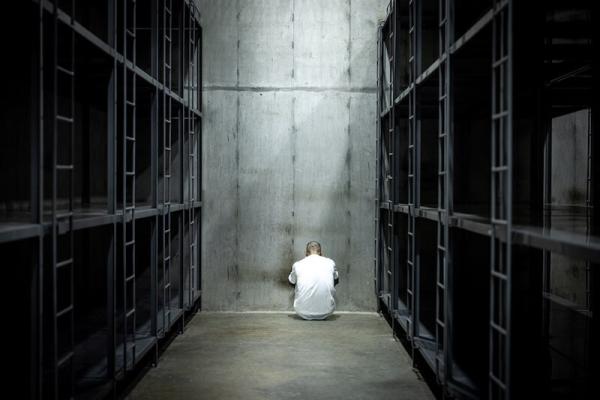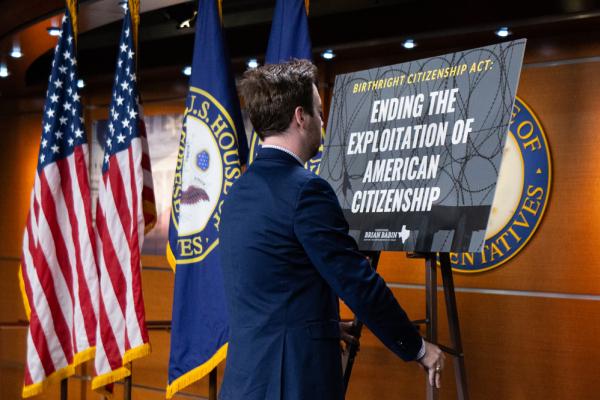I recently had a long conversation with a Trump supporter and fellow evangelical. We had a lot of differences, but we also found some common ground. We agreed that evangelical leaders who support Donald Trump have failed to rebuke the president’s immorality. The list of his depraved behavior is long, but here is a partial summary:
- He separated children from their parents at the Mexican border.
- He claimed that there were “very fine people on both sides” after white supremacists invaded Charlottesville, Va.
- He made derogatory comments about the appearances of multiple women.
- He said the people of Haiti, El Salvador, and Africa come from “shithole countries.”
- He is a chronic liar.
- He not only demonizes the free press, but he attacks the dignity of individual reporters.
- He attempted to get Ukraine to interfere in the 2020 presidential election on his behalf.
- He inspires school kids to bully their classmates.
When Trump engages in these activities, many of his most ardent evangelical followers —Franklin Graham, Robert Jeffress, Paula White, Eric Metaxas, Jerry Falwell Jr., James Dobson, and Ralph Reed, to name a few — look the other way. They are unable to speak truth to power because Donald Trump and his Republican Party hold them captive. I recently challenged the bipartisan readers of my blog, The Way of Improvement Leads Home, to find five examples of a pro-Trump evangelical leader making a strong public condemnation of the president’s tweets, speeches, behavior, or policies. So far, I have not received any responses. These men and women, who have tens of thousands of evangelicals who hang on their every word, place political power and expediency over their call to be effective witnesses for biblical truth in the world.
It was at this point in the conversation that my pro-Trump friend pushed back. Yes, he said, Trump’s court evangelicals have failed to exercise moral clarity. But then he added: “What about the Left? Haven’t they also lied, demonized their enemies, and acted in a hypocritical manner?” Of course, they have, I told him. I do not have any illusions about the world of politics. It is a corrupt sphere. It contains more darkness than light. But I do have high standards for Christians – men and women who, while sinners, are called to rise above this broken world through God’s grace and the power of the Holy Spirit. Christians don’t justify immorality by pointing out the sins and flaws of other people and say, “what about them?” The moral behavior of Christians in public is not dependent upon the conduct of others. Christians are called to live faithful lives according to the standards of God’s word as revealed in the scriptures. When we see sin at the highest levels of government, and we have a platform to do something about this kind of moral corruption, we condemn it. The prophets of old did this. Jesus did this. Again, my friend and I found some common ground here and it was good to end our conversation on a point of agreement.
The United States is not a Christian nation. Nor was it founded as such. The Founding Fathers argued over politics and policy just like we do, but they were united in the belief that republics fail without virtue. They believed people must always exercise what they called “political jealousy.” A jealous citizen kept a principled watch on government leaders to guard against vice and corruption. Political jealousy served as a unifying force, a common ideology of resistance to tyranny grounded in a shared morality. By keeping our heads in the sand as Trump proves he is incapable of living according to the most basic standards of decency, evangelicals neglect to do their part in sustaining our republic.
We have failed to be good citizens. We have become complicit in the president’s nativism, racism, xenophobia, narcissism, and fearmongering. Sadly, Trump-supporting evangelicals have now lost much of their moral authority to speak out on matters related to government corruption, pornography, sex and violence in movies and television shows, racial reconciliation, school bullying, and the decline in civil discourse.
I left this discussion with my friend wondering: Am I being too hard on evangelicals? Perhaps. But this is my tribe. I have chosen, for better or for worse, to save my strongest criticism for my own people.
The political problems in our community run deeper than just our failure to speak with a prophetic voice. Donald Trump will be gone one day. But the political playbook that evangelicals follow will not go away unless we decide to burn it and start over. There is a very good chance that this playbook will lead evangelicals into the arms of another immoral tyrant who promises conservative Supreme Court justices and offers platitudes about religious liberty.
We need a new political playbook. We need to replace our lust for political power with heavy doses of humility. We must forge a new kind of politics defined, at its very core, by human dignity. It is imperative that we teach our children and grandchildren a way of engaging the world that offers it a glimpse of a coming kingdom defined by love, justice, mercy, and compassion. We need to offer hope, not fear.
Such a playbook ought to address old moral issues in new ways. Take, for example, abortion. Since Roe v. Wade, we have addressed the problem of abortion by trying to win elections. Why do we do this? We give billions of dollars to political candidates and lobbyists so we can get a leader in the White House who will appoint Supreme Court justices who will overturn Roe v. Wade. And what do we do after Roe v. Wade is overturned? Most of our cultural warriors haven’t thought that far ahead yet. As I continue to travel around the country lecturing on the history of evangelical politics, I have realized that most ordinary evangelicals, whether they voted for Trump or not, have no idea that the overturning of Roe v. Wade will not end abortion in America. The practice will still flourish in many of the nation’s largest and most populated states.
It is time to have a serious discussion about whether the appointment and confirmation of federal justices is really the best way of curbing this horrendous practice. We should start by taking a hard look at why so many in our tribe have come to address abortion in this way. Maybe we need to interrogate the last fifty years of evangelical history and re-examine the choices we have made and the strategies we have employed. Are they still useful, effective, relevant, and biblically sound in a new era of American politics? Unless evangelicals develop some new ideas on this front, we will end up in the hands of the next tyrant who is willing to use abortion to advance his or her political fortunes.
And what about religious liberty? Yes, there are some legitimate threats to religious liberty, especially for Christian colleges and other institutions who uphold traditional views on matters related to sexual ethics. But evangelicals need to start thinking about religious liberty in a way that does not lead us straight into the hands of people like Donald Trump. We need a robust conversation about the relationship between religious liberty and the kind of persecution for the sake of righteousness that Jesus talks about in Matthew 5. It is time for creative solutions that offer civil liberties to all people, including members of the LGBTQ community. (I support the Fairness for Fall Act on this front). Let’s stop logging into our social media accounts in order to demonize our political enemies with Fox News talking points. Let’s instead seek out face-to-face conversations, conducted in civility and love, with those who disagree with us.
Over the last four years I have talked with many evangelicals who have a strong distaste for Donald Trump and the culture war politics of the Christian Right, but when it comes to political participation, they are still using the old playbook. This is a sign of our intellectual laziness and complacency, for over the course of the last half-century evangelicals have thought long and hard about alternative Christian approaches to politics.
Some of our best thinkers have offered ways of entering the public square that do not rely on fear, nostalgia, or an unhealthy pursuit of power. Yet, their views have received little traction, a testament to the formidable hold that the Christian Right has over evangelical life. It is time to take these approaches seriously. Read Michael Gerson, Jonathan Wilson-Hartgrove, Lisa Sharon Harper, James K.A. Smith (and his Kuyperian friends), John Inazu, Timothy Keller, James Davison Hunter, Glenn Tinder, Ronald Sider, Miroslav Volf, Willie Jennings, Jim Wallis, Vince Bacote, N.T. Wright, Kristen Deede Johnson, and Peter Wehner.
Not all these evangelical political thinkers agree on how to do Christian politics, but they are united in their belief that the failings of the Christian Right’s political playbook have been made bare for all to see in the age of Trump.
First and foremost, this president needs to go. Only then can we start to bind the wounds that he has inflicted on the evangelical community and begin the work of reconstruction, education, and renewal.
Got something to say about what you're reading? We value your feedback!







